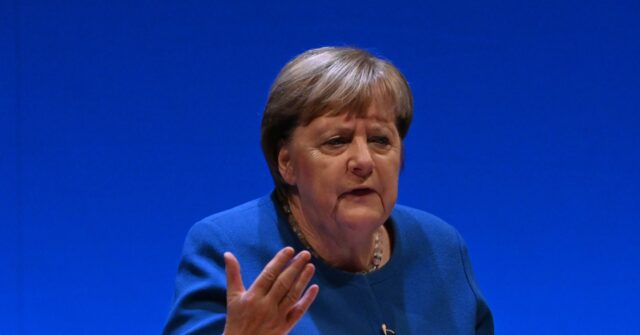Recently, Amazon’s platform in Germany faced backlash for restricting users from leaving reviews on former Chancellor Angela Merkel’s memoir, titled “Freedom: Memories 1954 – 2021.” The book, published after Merkel’s 16-year tenure in both German and European politics, has sparked considerable debate. Users attempting to submit reviews on Amazon were met with a notification indicating that their reviews could not be accepted due to “unusual review activity.” This move has led to speculation about the relatively low ratings the memoir has received, averaging only 3.4 stars, alongside a notable number of one-star reviews that critique Merkel’s legacy.
The criticisms highlighted in the one-star reviews suggest a sense of disillusionment among readers. For instance, a notable review argued that Merkel’s autobiography serves only an elite audience, failing to provide an honest assessment of her political tenure. This sentiment reflects broader challenges to Merkel’s public image, where her leadership decisions, particularly those related to the 2015 migration crisis, remain divisive issues. As her memoir is scrutinized, it appears that many readers anticipated a more transparent evaluation of her time in office, rather than what they perceive as an attempt to solidify a favorable legacy.
In contrast to the negative critiques, some five-star reviews praised the book for offering insights into Merkel as a person, suggesting it’s a valuable read for those interested in the intricacies of her character. During her time as Chancellor, Merkel was a pivotal figure, earning respect from many; however, the subsequent examination of her legacy has revealed complexities and mixed feelings, particularly surrounding her migration policies. Her decision to welcome a significant number of migrants into Germany has been met with criticism, especially regarding the public’s concerns over crime and social cohesion in the wake of her open-door policy.
Additionally, Merkel’s management of German-Russian relations has also come under scrutiny. Her approach involved a growing reliance on Russian energy, which was intended to bolster Germany’s energy security. However, this strategy has faced severe criticism since the Russian invasion of Ukraine and subsequent sanctions, which cut off energy supplies that many argue left Germany vulnerable. The recently declassified documents indicating that her administration believed further reliance on Russian gas would not threaten Germany’s energy future highlight the miscalculations associated with her energy policy.
Despite the mounting criticism, Merkel continues to defend her decisions regarding Russia’s energy supplies, positing that these agreements were crucial for maintaining peace in Europe. In her memoir, she reiterates this stance, asserting that the gas deals struck with Vladimir Putin were a means to stabilize relations between the West and Russia. Nevertheless, the fallout from these policies has sparked considerable economic challenges for Germany, particularly in light of the damaged Nord Stream pipelines which resulted from alleged sabotage during the ongoing conflict.
In conclusion, Angela Merkel’s post-chancellorship narrative is complicated by polarized public perceptions reflected in the reviews of her memoir. While some readers appreciate the insights into her life, others express dissatisfaction with her self-portrayal and decisions made during her leadership. As Germany grapples with the lasting impacts of Merkel’s policies—particularly concerning migration and energy dependence—the ongoing discourse surrounding her legacy will undoubtedly shape the nation’s future political landscape and its collective memory of her time in office.

